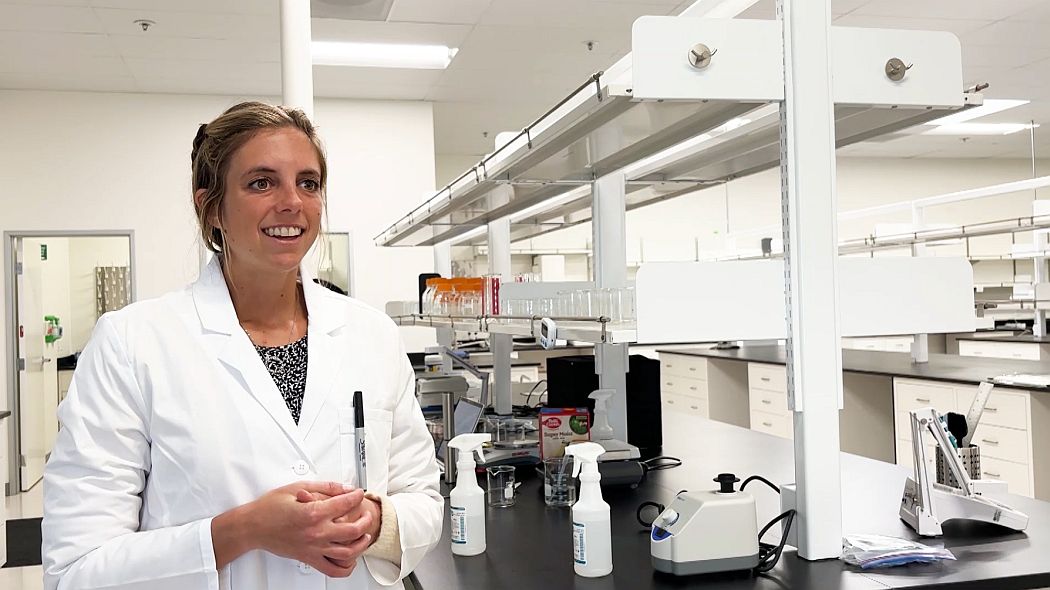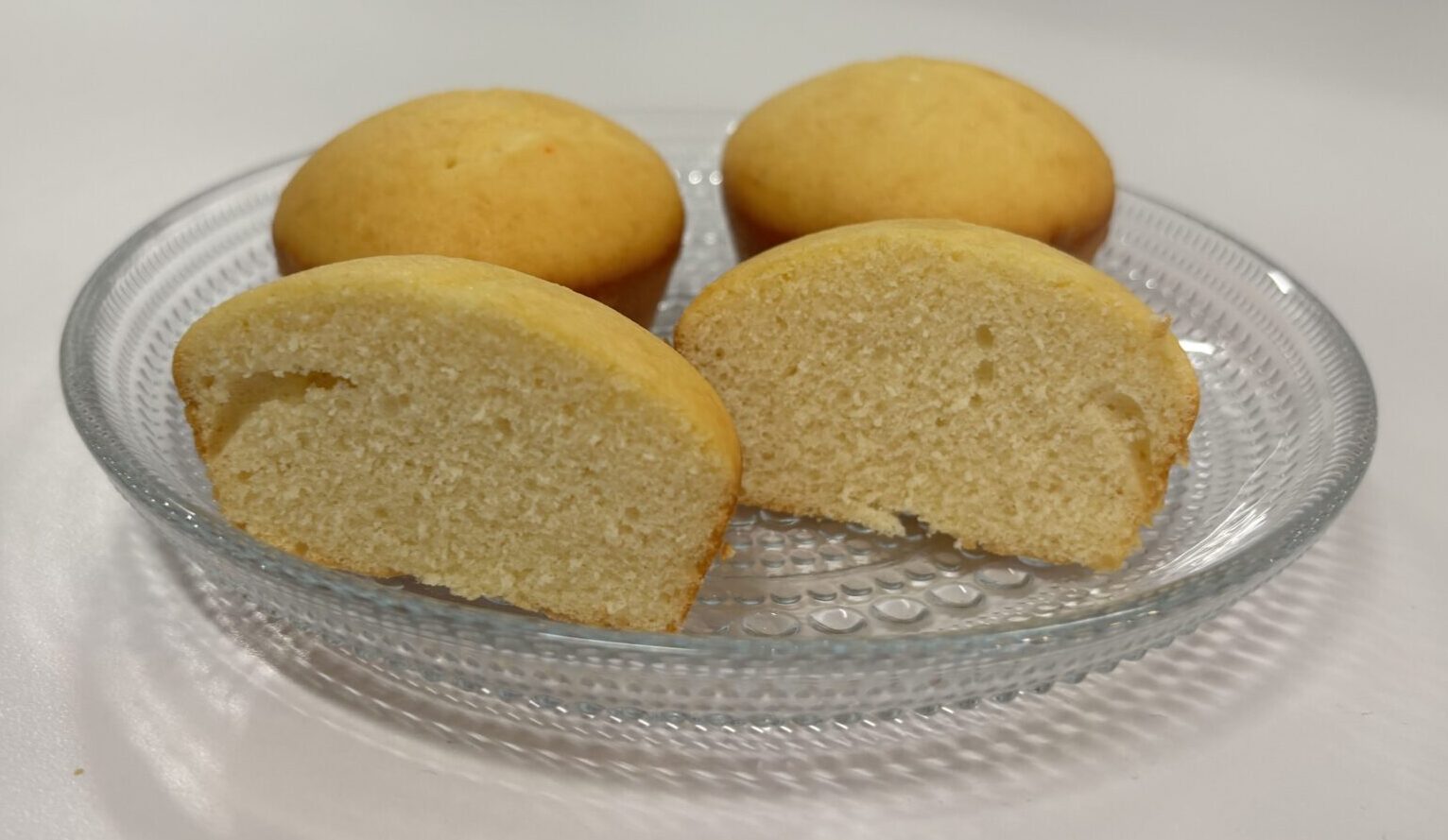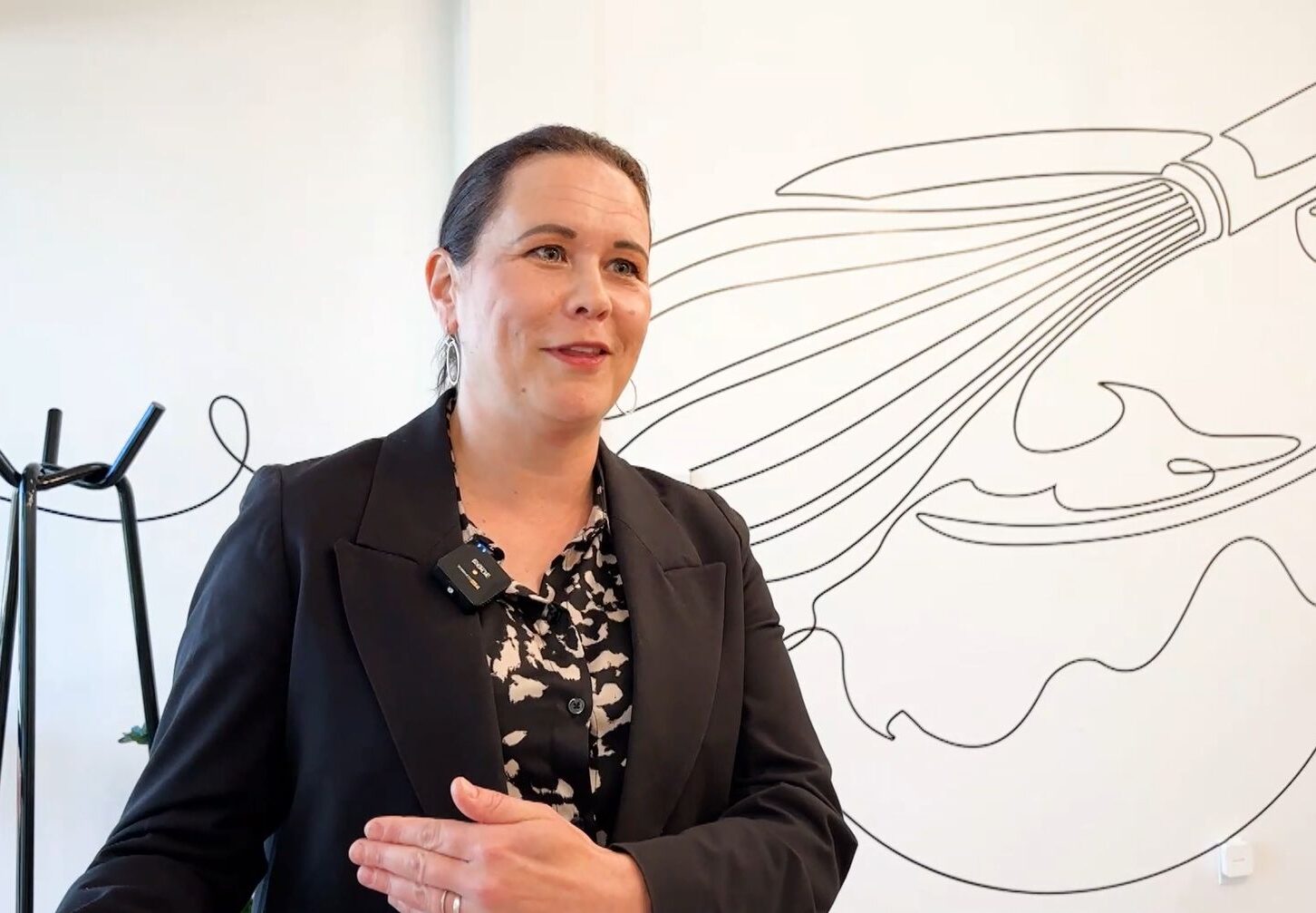Precision fermentation startup Onego Bio, which makes egg proteins with microbes instead of chickens, is eyeing a site in Wisconsin for its first in-house production facility for ‘Bioalbumen,’ a trademarked ingredient that is bio-identical to ovalbumin, the primary protein in egg white.
Right now, the Finnish startup is working with co-manufacturers but ultimately wants to build its own facilities, said cofounder and CEO Maija Itkonen, who caught up with AgFunderNews this week at the company’s new 5,000sq ft commercial HQ in San Diego.
“We have contract manufacturing partnerships producing material for next year, and we’re looking forward to starting bigger industrial trials and early market launches with our partners next year. Hopefully we’ll be generating revenues in 2025. We have also signed a letter of intent [a non-binding agreement] for a [in-house manufacturing] site in Jefferson, Wisconsin, and we are just starting the evaluation period for identifying the suitability of that site to be the first Bioalbumen factory.”
The purchase agreement for the 25.9-acre parcel of land, “provides a 12-month due diligence period with up to two consecutive extensions of up to six months,” said Itkonen. “In the coming months, Onego Bio will be conducting a more extensive site evaluation.”
She added: “We are getting good results from co-manufacturing [Onego Bio uses a genetically engineered strain of fungus to express ovalbumin in fermentation tanks] but at the same time, having our own manufacturing is of course, going to be a game changer for prices.”
To build out its first manufacturing facility and continue scaling Bioalbumen, she added, “Our plans will likely include the raising of both project financing as well as an additional equity round.”
Avian flu has changed the game for animal-free egg proteins
While jaundiced investors are scrutinizing precision fermentation startups far more carefully today than they were a couple of years ago, they don’t need much convincing that there’s a market for egg replacement, claimed Itkonen.
Food manufacturers, she said, have been looking for viable egg replacements for years as prices and supplies go up and down like a Yo-yo with every new avian flu outbreak. And plant-based products—while improving by the day—don’t cut it in every application.
At base, manufacturers just want eggs’ functionality and clean label credentials, without the associated hassle of a short-shelf-life animal product, said Itkonen, an industrial designer who made her first move into the food industry in 2015 after cofounding plant-based meat firm Gold & Green.
Helsinki-based Onego Bio has amassed a team of 40+ since it was founded by Itkonen and molecular biologist Dr. Chris Landowski (CTO) in 2022 as a spinoff from VTT (Technical Research Center of Finland), and raised $75 million through a combination of grants and equity funding.
The company has just filed a GRAS (Generally Recognized as Safe) notice with the FDA affirming the safety of its ovalbumin, and hopes to secure a ‘no questions’ letter from the agency next year. After that, said Itkonen, “we’ll be also filing with EFSA in Europe, and Singapore is also in our plans.”
She would not say what titers the company is achieving with its strain of Trichoderma Reesei, but added: “Trichoderma is a fantastic platform because it allows significantly higher production levels compared to other organisms. While 100-120g/l is fully possible, 40-50g/l makes strong business sense. Nobody has done this with ovalbumin before, but the system architecture remains more or less the same regardless of the end product.”

Aeration, whipping, gelling, binding, and foam stability
While Onego Bio is only producing a single egg protein (ovalbumin), it is able to replace eggs in many applications, delivering functional properties including aeration, whipping, gelling, binding, and foam stability, said head of product development Dr. Halle Redfearn.
“Ovalbumin in actually an excellent replacement for egg white,” said Redfearn, who showed us around the firm’s brand new quality and applications lab, where Onego Bio is collaborating with customers in everything from baked goods to pasta.
“It contains all of the functionalities that you typically see in egg white, including binding, emulsification, foaming, and gelation, all from that one protein. And actually, if you replace egg white with albumin [the dominant protein in egg white, comprising about 54% of the total protein], you can usually use less [as the other proteins in egg white don’t make a meaningful contribution from a functional perspective].
“So we’ve seen that in our Bioalbumen, for example, we can actually decrease the amount [we use in an application] and get the same exact product, or we can go with a one-to-one replacement and actually get a better product.”
She added: “We test anything that typically uses egg white, but we’ve also been testing things that use whole egg and that’s because the main emulsifying protein that’s in an egg white is albumin. And so if you take that albumin, and you increase it from 54% [in egg white] to 100% albumin, you get a really good emulsifying protein. And so we’re able to replace egg yolk in a lot of applications such as mayonnaise and dressings, anything that requires the retention of oil. If anything [when using Bioalbumen to replace whole egg] we may just add some oil for the fat content.”
Cookies, cakes, pasta, meat alternatives
In the new facility, which has equipment for accelerated shelf-life testing and textural analysis, Redfearn and colleagues have been testing Bioalbumen in multiple applications “to show its different functionalities. So in a cake we’re looking at aeration, whereas in a chocolate chip cookie, it’s really about binding that oil in the water so you get the buttery mouthfeel. Same for protein bars or oatmeal raisin cookies.
“But we’ve also done methylcellulose replacement for meat binding, where egg white is often used as a binding agent, and certain pastas, where the albumin provides the binding for the water and the polysaccharides.”
In general, she said, “a lot of companies are moving away from liquid eggs towards powdered eggs. Mid-sized bakeries are big fans of egg white powder, because you can order it two years ahead of time and it’ll still be good. And from an R&D perspective, our powder distributes really evenly in a dry mix so you get a really homogeneous, consistent product, and from a processing perspective, you don’t have anything sticking to the equipment.”
While plant-based egg replacers are improving, she said, they don’t generally have all the qualities of egg protein. “In a baked good, the albumin protein binds with the polysaccharides and makes a really strong network providing a structure that then allows water to evaporate out of the product and leaves air pockets. With something like mung bean protein [used in Just Egg products], that’s really good at keeping all of the butter and the water in the cake, but it’s not necessarily good at forming that structure.”

Eggs… without chickens
While multiple players have entered the ‘animal-free’ dairy space, The EVERY Co and Onego Bio are the only two well-known startups engineering microbes to make egg proteins.
The EVERY Co, which is the most advanced, recently struck a deal with multinational food manufacturer Grupo Palacios to incorporate its liquid egg alternative into Palacios’ flagship Spanish omelets. It has also teamed up with Unilever-owned brand The Vegetarian Butcher to incorporate its egg white alternative into selected meat alternatives as a clean label binder.





